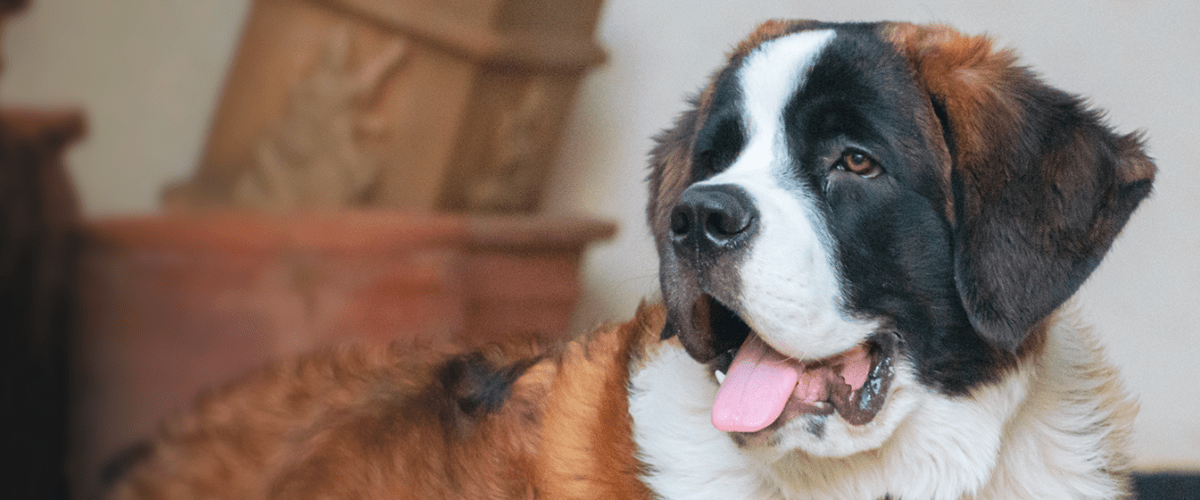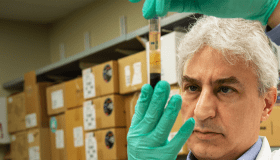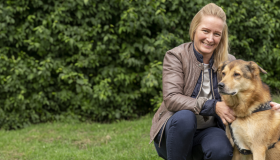
DENVER/Nov. 7, 2023 – A new study is set to evaluate the effectiveness of a novel drug combination tailored to giant-breed dogs diagnosed with osteosarcoma, a deadly form of bone cancer. This research aims to offer an alternative for dogs ineligible for limb amputation – the primary treatment method – but also to potentially reduce the need for surgical amputation altogether.
The study is a collaborative effort between ELIAS Animal Health, and University of Missouri experts Dr. Jeffrey Bryan, Professor of Veterinary Oncology, and Director of the Comparative Oncology Radiobiology and Epigenetics Laboratory, and Dr. Megan Mickelson, Assistant Professor of Small Animal Surgical Oncology. They aim to assess the safety and efficacy of a combination of two powerful immunotherapies: checkpoint inhibition and adoptive T-cell therapy. This immunotherapy approach, developed by ELIAS Animal Health, is designed to stimulate a dog’s immune system to kill cancerous osteosarcoma cells.
“We're trying a different technique where we'll try to spare the limb and avoid amputation," said Noe Reyes, Chief Medical Officer at ELIAS Animal Health and the study’s principal investigator. “If successful, we could hopefully open a new treatment option for the appropriate patient candidates.”
Osteosarcoma is the most common primary bone tumor diagnosed in dogs, impacting more than 10,000 dogs annually. This form of cancer disproportionately affects the long bones of large- and giant-breed dogs. While surgical amputation followed by chemotherapy proves effective for some, it is not a viable option for all dogs. This study endeavors to bridge that gap, offering expanded treatment options and renewed hope for dogs.
“I believe that amputation has been a significant barrier in embracing the immunotherapy process for some families,” Bryan said. “If we can establish that surgical limb sparing is a viable route to achieving a robust immune response, it would be very exciting for many pet owners.”
The team also will generate preliminary data necessary for the subsequent submission of an investigational autologous therapy application to the USDA’s Center for Veterinary Biologics. The successful completion of this study will mark key developmental progress in advancing the combination vaccine and cellular therapy treatment, ultimately improving outcomes in all dogs diagnosed with appendicular osteosarcoma.
The study is part of a broader donor-inspired initiative at the Foundation to fund studies that lead to positive impacts and achievements for animal health, benefiting both scientific and nonscientific stakeholders.
About Morris Animal Foundation
Morris Animal Foundation’s mission is to bridge science and resources to advance the health of animals. Founded in 1948 and headquartered in Denver, it is one of the largest nonprofit animal health research organizations in the world, funding nearly $160 million in more than 3,000 critical animal health studies to date across a broad range of species. Learn more at morrisanimalfoundation.org.
Media Contact: Annie Mehl




